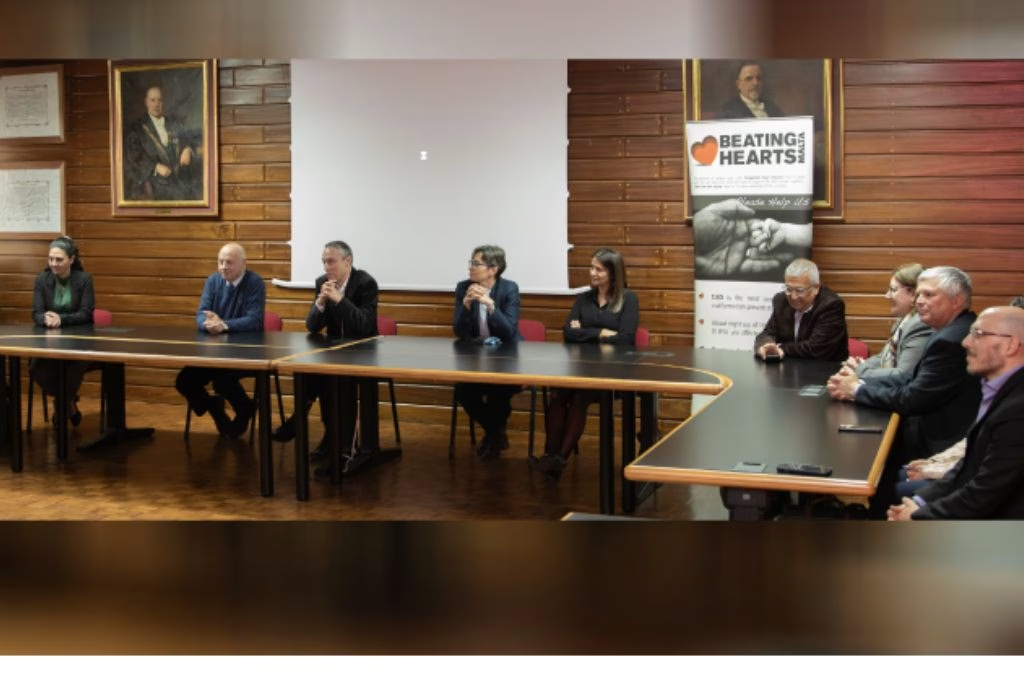
Investing in the Future of Cardiovascular Health
The University of Malta (UM) is at the forefront of groundbreaking cardiovascular research, thanks to the generous support of Beating Hearts Malta, a local NGO dedicated to advancing cardiovascular health. This collaboration is funding two innovative projects that hold immense promise for improving the lives of individuals affected by cardiovascular disease.
Combating Cardiotoxicity in Cancer Treatments
Dr. Vanessa Petroni Magri, from UM’s Department of Clinical Pharmacology and Therapeutics, is leading a project focused on reducing the cardiotoxicity of novel chemotherapeutic strategies. Cardiotoxicity, or damage to the heart muscle caused by cancer treatments, is a serious concern that can limit treatment options and negatively impact patients’ quality of life. Dr. Petroni Magri’s research aims to develop alternative cancer treatments that effectively target cancer cells without harming the heart. This research involves growing heart models “in a tube” and testing the effects of new chemotherapy agents on these models, allowing researchers to identify potential cardiotoxic effects early in the drug development process. Collaborating with research centers in Marseille, Porto, and Cork, Dr. Petroni Magri’s work has the potential to revolutionize cancer treatment by minimizing harmful side effects on the heart.
Early Detection of Cardiovascular Disease with AI
Dr. Kenneth Scerri, from the Department of Systems and Control Engineering at UM, is harnessing the power of artificial intelligence (AI) and smart technologies to develop a system for the early detection of cardiovascular disease. This project analyzes data collected from smartwatches and single-lead electrocardiograms (ECGs) to identify subtle patterns indicative of potential cardiovascular problems. By detecting these early warning signs, individuals can seek timely medical intervention and potentially prevent serious health complications. Dr. Scerri’s research leverages the increasing prevalence of wearable health monitoring devices to provide a readily accessible and potentially life-saving screening tool for cardiovascular disease. The ability to analyze data from readily available devices like smartwatches significantly expands the reach of cardiovascular screening, making it more accessible and potentially identifying at-risk individuals who might not otherwise undergo traditional screening methods.
A Collaborative Effort to Advance Cardiovascular Research
The partnership between Beating Hearts Malta and the University of Malta demonstrates the power of collaboration in driving medical innovation. Beating Hearts Malta’s financial contribution, channeled through the UM’s Research, Innovation and Development Trust (RIDT), has enabled these critical research projects to move forward. This investment reflects a commitment to improving the lives of individuals affected by cardiovascular disease and fostering a culture of research excellence in Malta.
The Importance of Philanthropic Support
Prof. Alfred J. Vella, Rector of the University of Malta, expressed his gratitude to Beating Hearts Malta for their ongoing support, emphasizing the vital role of philanthropy in funding research that directly impacts quality of life. This sentiment highlights the importance of community involvement in advancing scientific discovery and addressing pressing health challenges. Investing in research not only leads to scientific advancements but also fosters a vibrant research ecosystem, attracting talented researchers and creating opportunities for innovation and economic growth within the community. By supporting organizations like Beating Hearts Malta, individuals can contribute to the development of life-saving medical breakthroughs.
Looking Towards the Future of Cardiovascular Care
The innovative research projects funded by Beating Hearts Malta at the University of Malta represent a significant step forward in the fight against cardiovascular disease. By combining cutting-edge technologies like AI with fundamental research into the mechanisms of heart disease, these initiatives hold great promise for improving early detection, treatment, and prevention strategies. Continued investment in cardiovascular research is crucial not only for developing new treatments but also for improving our understanding of risk factors, prevention strategies, and ultimately, for enhancing the overall cardiovascular health of the population.
Interested in Studying at the University of Malta?
Let Studygram help you make it happen! Contact us today for personalized support, application guidance, and everything you need to start your academic journey at one of Malta’s top universities.

